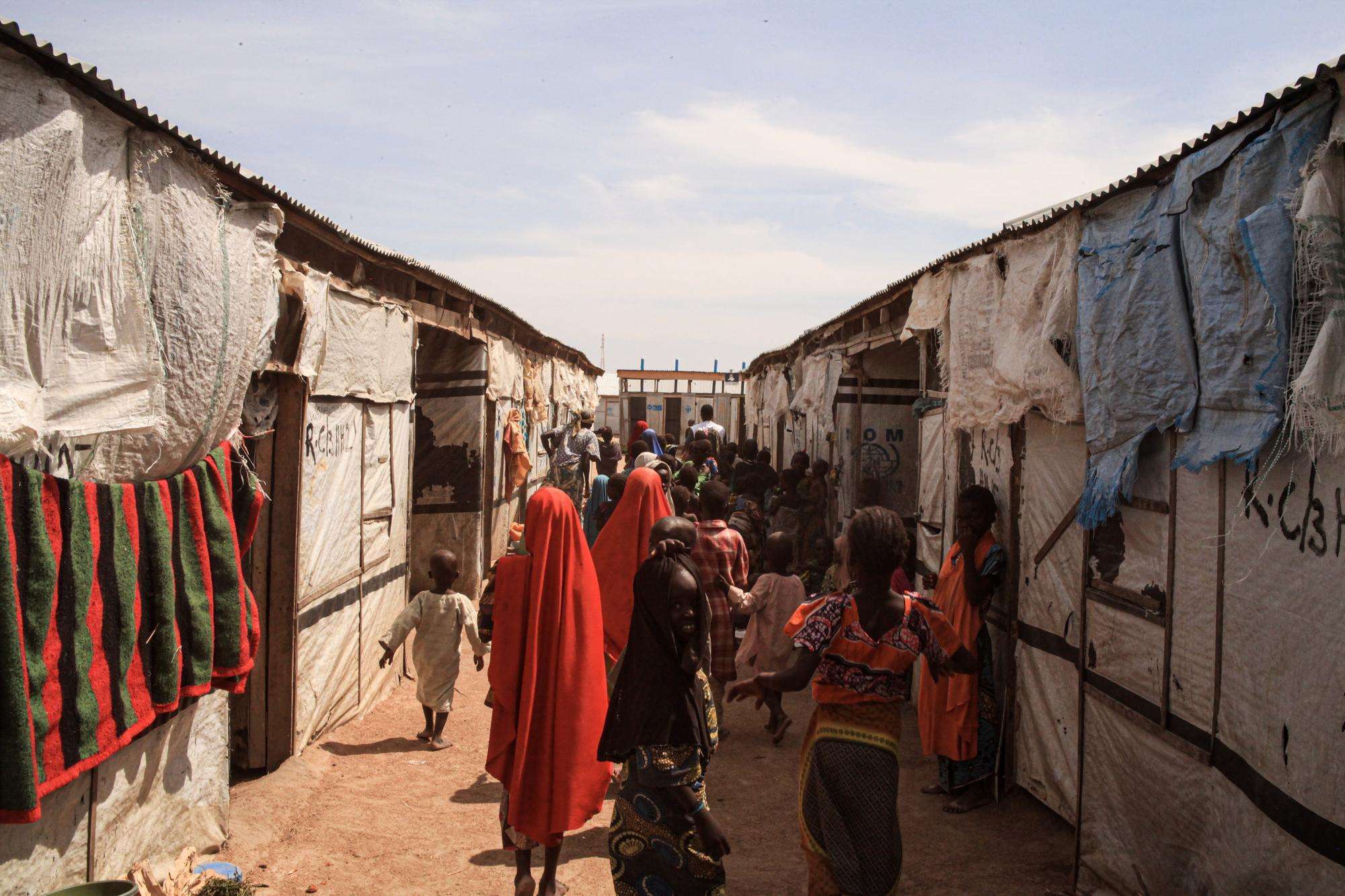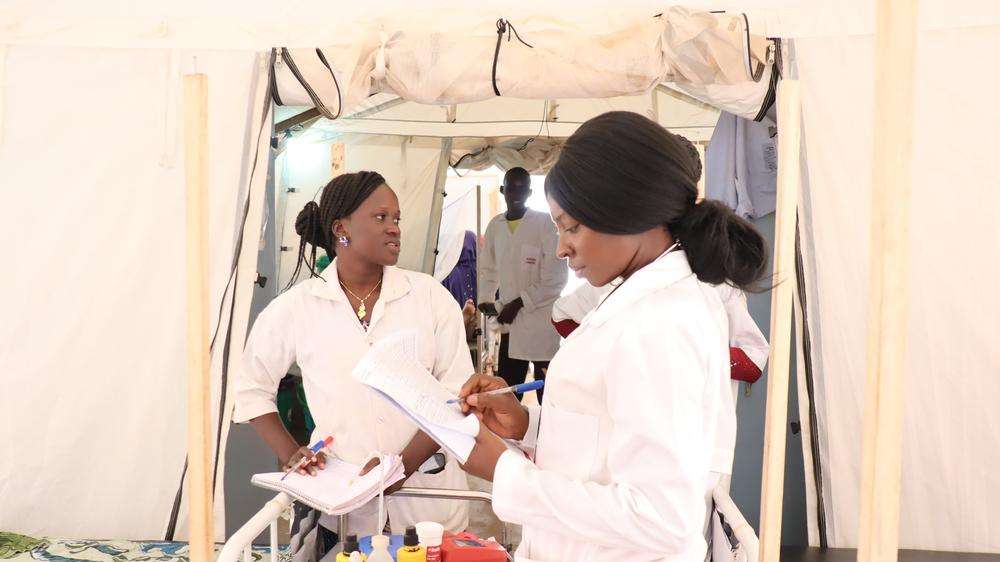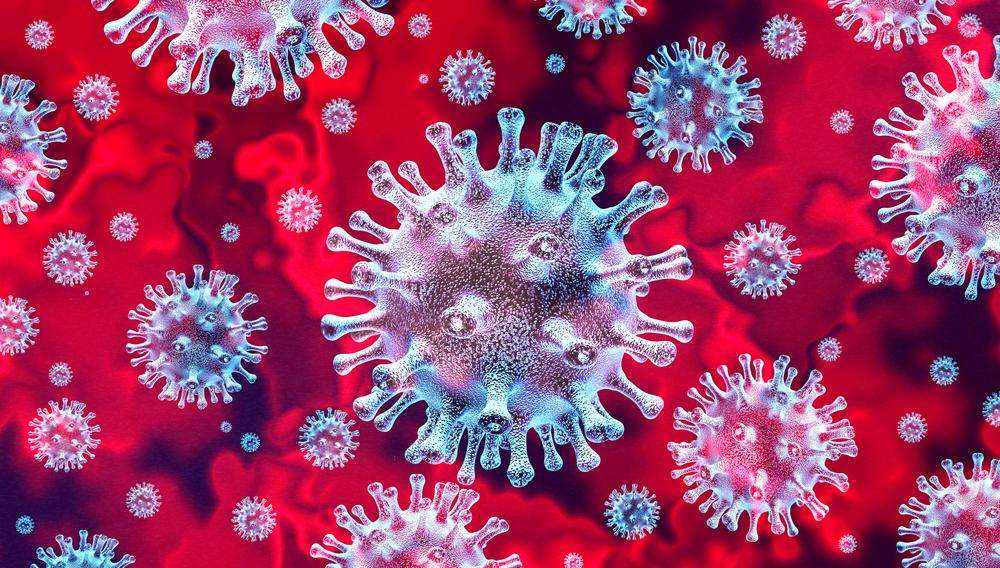After more than a decade of armed conflict, outbreaks of malaria, measles, and cholera, and waves of severe malnutrition, approximately 1.5 million internally displaced people (IDPs) in Nigeria’s Borno state now face greater dangers presented by the spread of the new coronavirus disease, known as COVID-19. While the threat posed by COVID-19 must not be underestimated, if the chaos caused by this pandemic is allowed to curtail ongoing humanitarian assistance, the results will be catastrophic. Doctors Without Borders/Médecins Sans Frontières (MSF) is extremely concerned about the spread of the coronavirus and the potentially disastrous impact it will have on the most vulnerable here.
Many of those displaced in northern Nigeria live in deplorable conditions in vastly overcrowded camps with poor water and sanitation facilities, limited supplies of hygiene essentials such as soap, and often no individual space at all. The illnesses endemic to these camps—including waterborne diseases and respiratory tract infections like pneumonia—pose significant threats, let alone when coupled with COVID-19.
Functioning health infrastructure in Borno is scarce, and the capacity to refer patients is extremely limited. With so many people already vulnerable to outbreaks of disease, as the coronavirus spreads essential humanitarian assistance must be maintained, water and sanitation facilities must be improved in IDP camps, and frontline health workers must have access to personal protective equipment.
Maintaining lifesaving operations
COVID-19 has had a devastating effect on health care systems, economies, and populations worldwide and it poses a substantial threat in Borno. However, even if COVID-19 were not present in Nigeria, the need for humanitarian assistance in Borno would still be massive.
In just over a month, Nigeria’s rainy season will begin, bringing with it a surge in cases of malaria and malnutrition. In Maiduguri, Ngala, Pulka, and Gwoza, MSF hospitals run 24 hours a day, seven days a week, and during the rainy season they will all be full. In 2019 alone, MSF teams treated more than 10,000 patients for malnutrition in Borno and more than 33,000 confirmed cases of malaria; over 40,000 patients were admitted to MSF’s emergency rooms.
As the virus spreads in Nigeria, our priority is to maintain our operations while protecting our patients and staff. To do this, our medical and logistical teams have reinforced infection prevention protocols, informed local communities on the best prevention measures against COVID-19, installed hand washing points in local communities, established isolation zones, and adapted our triage processes.
At a time of unprecedented global demand for medical supplies, the procurement of personal protective equipment for health care staff poses a substantial challenge. But it is a challenge we must face in order to keep frontline medical workers safe and continue treating our patients.
Clean water: A precious and limited resource
In Pulka, where MSF runs a comprehensive hospital with outreach activities, surgical capacity, maternity care, and treatment for sexual and gender-based violence, the situation is dire. Pulka is a garrison town, a population center controlled by the Nigerian military. It is now home to approximately 63,000 people, 78 percent of whom have been displaced at least once since 2015.
There are 27,000 people living in overcrowded IDP camps in Pulka with limited access to basic services, including water, food, and health care. In both Pulka and Gwoza (a neighboring garrison town) the transit camps for new arrivals are overcrowded—in Gwoza, the transit camp population is triple the recommended capacity and in Pulka communal shelters designed as two-week accommodations host people for months or even years.
In a recent water and sanitation assessment, MSF found that the daily provision of water per person in Pulka was just 11 liters, far below the minimum humanitarian standard requirement of 20 liters required for health and hygiene. Of these 11 liters only an average of two liters was chlorinated and safe to drink. Quantities as low as 4.5 liters per person have also been recorded in previous surveys.
“You have to get up early if you want to get enough water,” said Ajia Adam, an internally displaced woman living in Pulka. “I have seven children, and sometimes the water just isn’t enough for us to drink—sometimes we have to beg our neighbors for drinking water. Every day women at the borehole fight over it—we know there won’t be enough for everyone.”
Social distancing is a luxury
In Maiduguri, the capital of Borno state, the water and sanitation situation is not much better. From 1999 to 2011, MSF responded seven times to outbreaks of cholera in Maiduguri, and in 2018 more than 4,000 people were diagnosed with the waterborne disease in 18 local government areas in Borno, Adamawa, and Yobe states.
“In all the IDP settings where MSF has operations in Borno state, gaps in essential water and sanitation facilities exacerbate the threat posed by COVID-19,” said Siham Hajaj, MSF head of mission in Nigeria. “These gaps, combined with the levels of overcrowding, and endemic health issues with a lack of corresponding health infrastructure, underscore the vulnerability of the population.”
COVID-19 is not the only threat facing people in Borno state, but its presence in Nigeria highlights the extreme vulnerability of so many who have already endured war, disease, and malnutrition. For them, social distancing is an abstract luxury, and frequent hand washing diminishes a precious resource. In the face of this pandemic, the ramifications of Borno’s fragile health infrastructure are clearer than ever. It is imperative that humanitarian assistance be maintained for this population. Failure to do so will cost lives.






